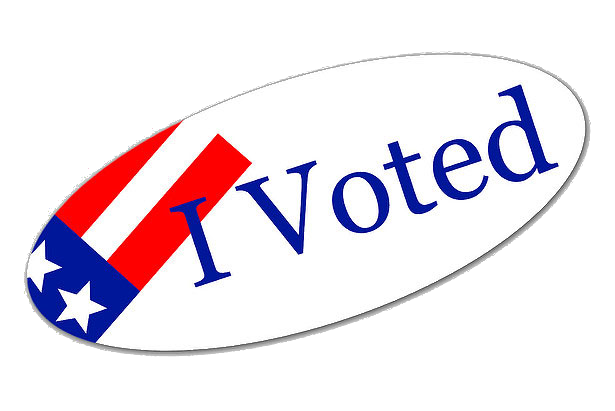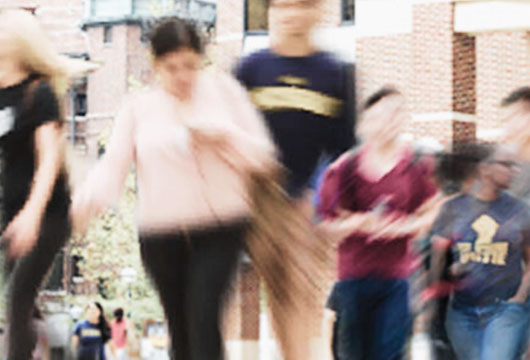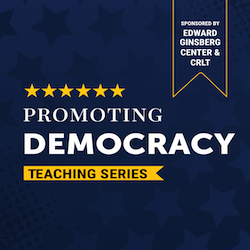 Teaching and learning are never entirely void of politics, but this fall—as a new U.S. president is elected mid-semester—the tension, drama, and controversy of the political moment will no doubt be especially palpable in classrooms across the university.
Teaching and learning are never entirely void of politics, but this fall—as a new U.S. president is elected mid-semester—the tension, drama, and controversy of the political moment will no doubt be especially palpable in classrooms across the university.
Instructors in every discipline have cause to prepare thoughtfully for the impact of this election season on their students, their curriculum, their classroom climate, and themselves. Maintaining a commitment to inclusive teaching during an election that is itself fraught with hostility around questions of diversity requires a renewed insistence on the free and fair exchange of ideas. To support this commitment, we offer the following three questions instructors might ask themselves while preparing to teach.
1. What role does my discipline play in the issues raised by this election?
Our students need to be able to critically evaluate the platforms of candidates and elected leaders. Every discipline is somehow implicated in these agendas, whether the topic is immigration and the rights of refugees; fracking, genetically modified foods, or climate change; education and health care; history, race, and the Black Lives Matter movement; gender (in)equality and LGBTQ rights; or international relations and the “war on terror.”
Instructors can ask:
- Which topics within my discipline might require special attention in light of the election?
- How might the candidate platforms be a resource for teaching and learning these topics?
- What are the diverse perspectives and voices that characterize my field related to these topics, and how do I maintain some balance in presenting them?
Many U-M students will vote in this election. By asking questions such as those above, we as instructors can help them engage with the data and skills they need to weigh the issues and make informed decisions.
2. How might my courses allow students to practice some of the fundamental, particular skills required by democracy?
In addition to the content of our individual disciplines and courses, there are overarching democratic skills that students can develop in courses across the University. These include:
- The ability to engage in civil discourse and thoughtful argumentation
- The capacity to speak and listen in ways that promote collective learning and advance social good
- The skills of critical literacy and the ability to evaluate bias in text, discourse, and other mediums
Instructors might use the occasion of the election to intentionally and transparently make space for teaching, learning, and practicing these foundational democratic skills. Particularly amidst powerful public examples of uncivil discourse, classroom communities can provide models and explicitly help students practice more informed and reasoned ways of speaking and listening in public life. Especially when students are new to college, they may have limited experience interacting with people whose ideas and viewpoints differ from their own. All instructors can help their students begin to practice habits of mind that allow them to engage critically and learn from unfamiliar perspectives--habits that are important as students contribute to conversations about any number of fraught topics.
3. Which students and instructors are disproportionately affected by the negative rhetoric this election?
Schools and campuses nationwide are reporting increases in the degree of harassment, targeting, stereotyping, and open hostility toward particular subgroups of students. Both students and instructors whose identities are repeatedly targeted or negatively represented can feel unsafe, unwelcome, and/or drained emotionally and intellectually by the public discourse around the elections. In particular, such negative discourses may affect members of our campus community who are Arab American, Black or African American, Mexican American, Muslim, people with disabilities, or immigrants. This is not of course an exhaustive list.
In light of this likelihood of disproportionate impact, instructors can:
- be acutely sensitive to the ways in which everyday, sustained feelings of anxiety and fear can impact students' ability to engage in class.
- be prepared with self-care strategies. These may be helpful to you and can also be shared with your students or colleagues who are feeling distressed amidst the current political climate.
- where possible, make particular efforts to include the voices and perspectives of these targeted groups in course materials and texts.
- intervene when you witness incidents of hateful or biased language or behaviors -- and be prepared for moments when tensions arise in your class related to social identities.
- through your syllabus and/or course website, direct all students to the supports on campus for reporting, healing from, and resisting racism and bigotry. These might include the bias incident reporting website, the Trotter Multicultural Center, and CAPS.
Teaching in this context will undoubtedly be challenging. As always, CRLT consultants are available to talk with any instructor about planning courses or class sessions -- or responding to difficult moments if they arise. You can make an appointment through our website or call at 734-764-0505.
Photo credit: "I Voted" by brettneilson is licensed under CC BY 2.0
- Log in to post comments
- 1755 views






